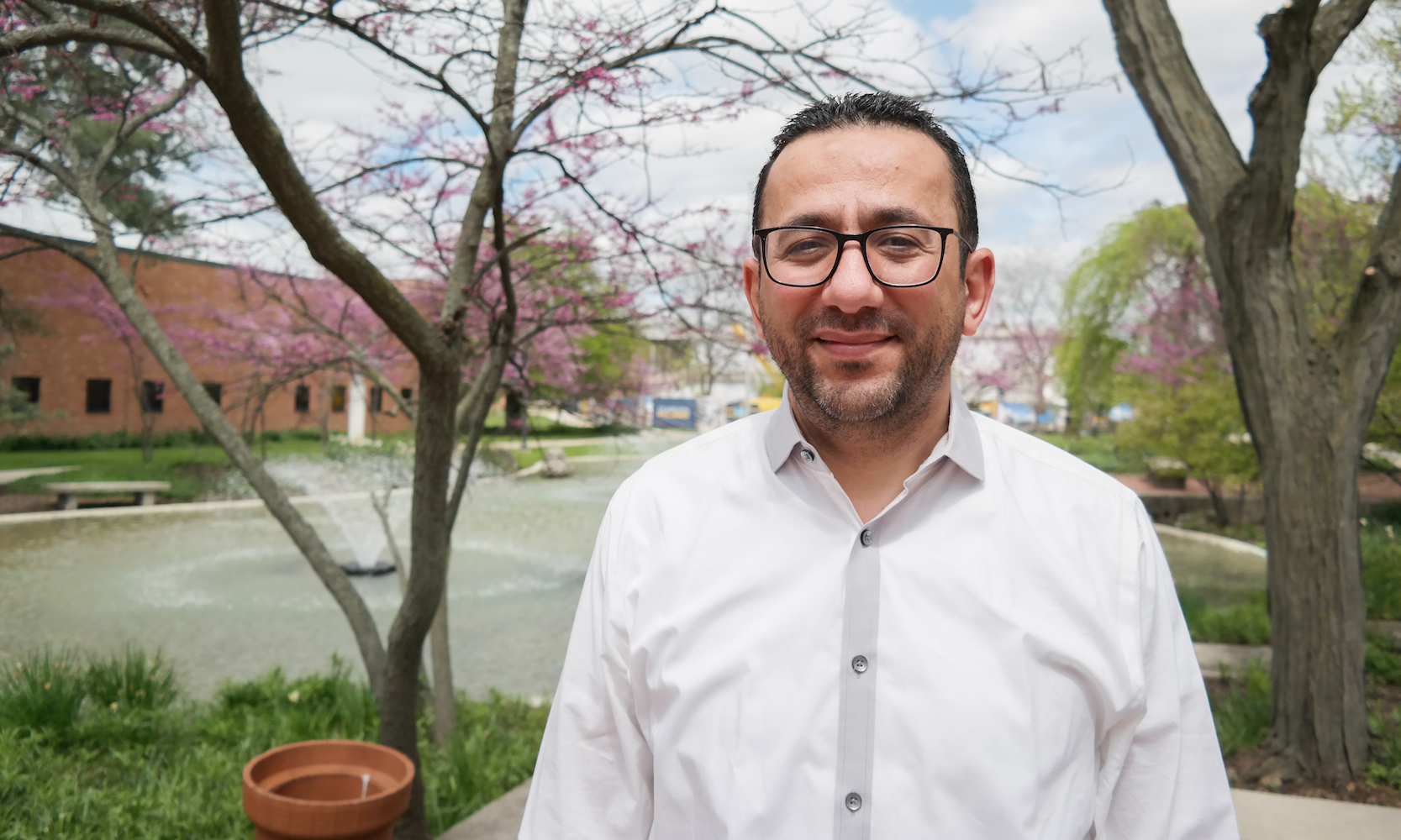
If you want to get a quick sense for what makes Professor Brahim Medjahed such a special teacher, ask him about his favorite course at UM-Dearborn. It’s an introductory computer science class that’s typically packed with everyone from fledgling coders to art and biology majors.
As such, it demands a special talent for making the material accessible to everyone. A classic Medjahed introductory class exercise: He hands the students a program that's functional, but totally inelegant and filled with redundancies and inefficiencies. The students' challenge? Make it pretty.
“I want my students to look at it as a piece of art,” Medjahed explains. “Thinking of it that way pushes them to think beyond the syntax or the technical aspects of the code and see its underlying architecture: the spacing, indentations, organization, the included comments that ask them to explain why something is the way it is. That approach is important for all students to learn, but it works particularly well with those who aren’t majoring in computer science. Biology, art, engineering — whatever it is, it has structure and beauty that is the basis of everything.”
It’s this knack for finding creative ways to engage diverse audiences that’s one of the reasons Medjahed has been racking up honors in recent years. In 2018, he was recognized with UM-Dearborn’s own Distinguished Teaching Award. In early 2019, he earned an appointment as an associate dean for academic programs and initiatives at U-M’s Rackham Graduate School, where his charge is to enhance the student experience in four new Ph.D. programs at UM-Dearborn.
And on Monday, he was honored by the Michigan Association of State Universities as one of three Distinguished Professors of the Year for his “significant impact on undergraduate student learning.” He’s the first UM-Dearborn professor to receive the award.
Medjahed’s own educational journey is a radical version of the first-generation college student experience that’s common among his students.
He was raised in Algeria by parents who had no formal education and struggled to read, but who had a passion for educating their children. Medjahed excelled in school — skipping two grades, and acing the baccalaureate entrance exam, which was his ticket to college. There he encountered faculty who brought a passion for their work and devotion to their students that he found contagious.
Driven to become a professor himself, he earned his undergraduate degree and M.S. at the University of Science and Technology–Houari in Algeria, before completing a doctorate at Virginia Tech University. He’s taught at UM-Dearborn since 2004, where he's also led undergraduate research experiences, mentored dozens more Ph.D. candidates and developed curriculum for high school students.
Most recently, Medjahed has turned his focus and passion to graduate education at UM-Dearborn. He says the momentum behind UM-Dearborn’s burgeoning doctoral culture is real, and sees an opportunity to create innovative new models for graduate studies. The heart of that, he says, could involve breaking down the traditional walls that divide undergraduate and graduate education — instead, building a research culture that thrives on diverse, interdisciplinary, integrated teams of undergraduate and graduate students.
“By combining the expertise of Rackham Graduate School and our knowledge of what works best for our students, I think we have a chance to build something here that’s totally unique,” Medjahed says. “Ten years down the road, I would love for other universities to be able to look to us as an example of how a small campus that’s traditionally focused on teaching can combine that with a thriving research culture.”


